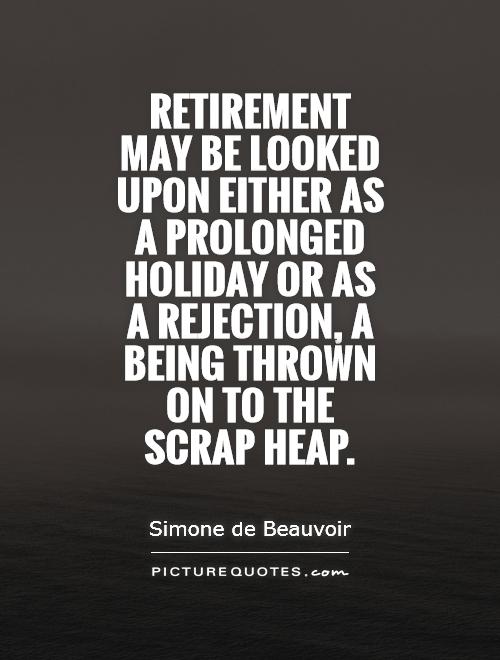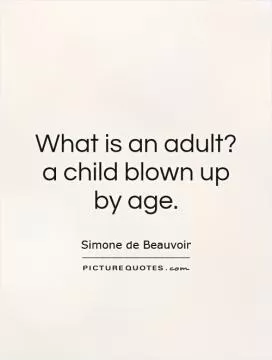Retirement may be looked upon either as a prolonged holiday or as a rejection, a being thrown on to the scrap heap

Retirement may be looked upon either as a prolonged holiday or as a rejection, a being thrown on to the scrap heap
Simone de Beauvoir, a prominent French existentialist philosopher, once said, “Retirement may be looked upon either as a prolonged holiday or as a rejection, a being thrown on to the scrap heap.” This statement encapsulates the dual nature of retirement - it can be seen as a time of relaxation and freedom, or as a harsh reminder of one’s diminishing value in society.For many individuals, retirement is a much-anticipated period of rest and relaxation after years of hard work. It is a time to pursue hobbies, travel, spend time with loved ones, and enjoy the fruits of one’s labor. In this sense, retirement can indeed be viewed as a prolonged holiday, a well-deserved break from the daily grind of work and responsibilities. It offers the opportunity to explore new interests, engage in leisure activities, and simply enjoy life without the constraints of a nine-to-five job.
However, for others, retirement can be a daunting prospect, signaling the end of one’s productive years and a transition into a state of irrelevance. In a society that often equates worth with productivity and success, retirement can feel like a rejection, a being thrown on to the scrap heap. The loss of a sense of purpose and identity that comes with leaving the workforce can lead to feelings of isolation, depression, and a sense of being marginalized.
Simone de Beauvoir’s words highlight the complex and contradictory nature of retirement. While it can be a time of liberation and self-discovery for some, it can also be a source of anxiety and despair for others. Ultimately, how one perceives retirement depends on a variety of factors, including personal values, financial security, social connections, and overall health and well-being.












 Friendship Quotes
Friendship Quotes Love Quotes
Love Quotes Life Quotes
Life Quotes Funny Quotes
Funny Quotes Motivational Quotes
Motivational Quotes Inspirational Quotes
Inspirational Quotes